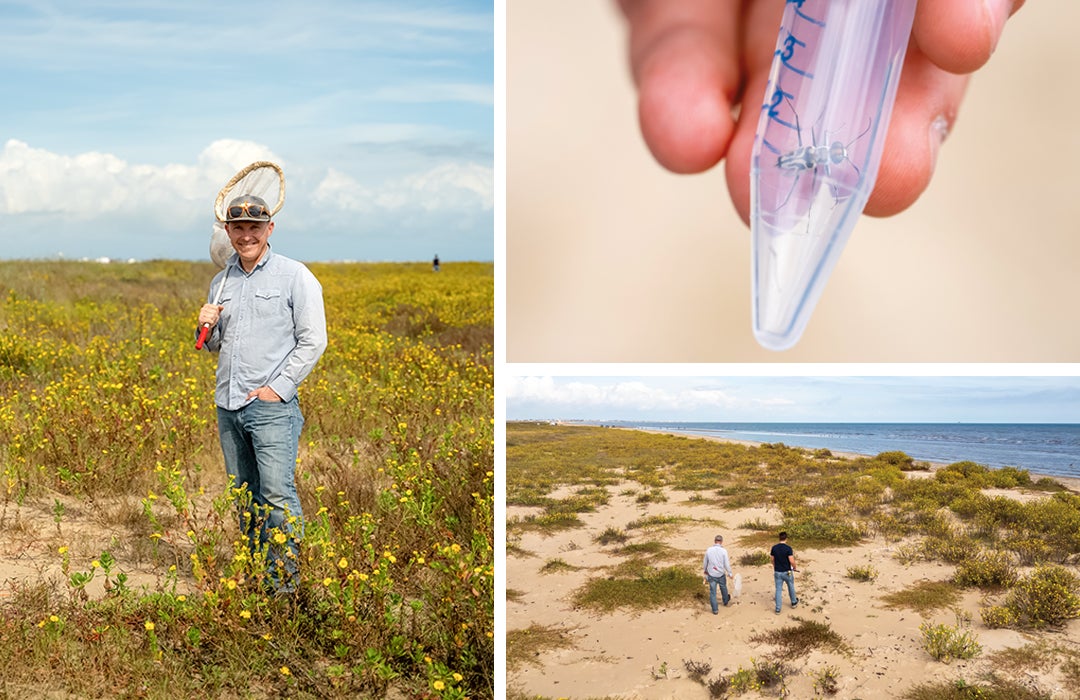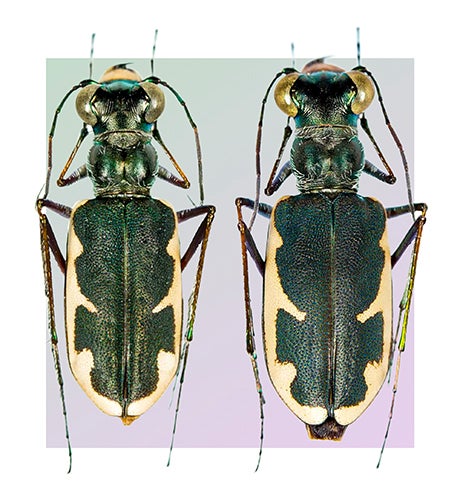Meet Our Beetle
Rice biologists have uncovered a new species of tiger beetle — and it’s named after Houston.

Fall 2024
By Marcy de Luna
Evolutionary biologist Scott Egan and his research team at Rice’s Wiess School of Natural Sciences have helped unearth a new species of tiger beetle that has been named Eunota houstoniana, honoring the Houston region where it predominantly resides.

The team employed genetic sequencing technology alongside traditional measurements of physical appearance and geographic range data to redefine species boundaries within the Eunota circumpicta species complex. This approach, known as integrative taxonomy, allowed them to identify a distinct biological entity that had been previously overlooked.
“It is amazing that within the city limits of Houston, we still don’t know all the species of insects or plants we share our region with,” Egan says. In Texas, there are around 62 known species of tiger beetles, but Egan says that is likely an underestimate of the diversity that exists.
The Eunota houstoniana was once considered identical to the more common Eunota circumpicta, but the team’s research revealed significant differences — a slightly smaller size, more subdued metallic coloring, and unique behavior and habitat preferences. The newly discovered species gravitates toward saline soils often found near salt domes and oil extraction sites along the Gulf Coast. Its habitat ranges from coastal regions to inland areas, showcasing adaptability and ecological significance.
It is amazing that within the city limits of Houston, we still don’t know all the species of insects or plants we share our region with.
The discovery of Eunota houstoniana underscores the urgency of biodiversity conservation. The beetle’s habitats are increasingly jeopardized by urbanization and agricultural and industrial activities, Egan says, and although it’s newly discovered, Eunota houstoniana is likely a threatened species.
“Because of all the growth around Houston, some of these populations have likely gone extinct,” Egan says.
Eunota houstoniana marks the 17th new species described by Egan and his collaborators during his 11 years at Rice. Their work has been instrumental in uncovering and describing previously unknown insect species in the state. By identifying and documenting such species, researchers like those in Egan’s laboratory provide essential groundwork for conservation efforts.
Egan shares the credit with his collaborators, saying, “[This discovery] would not have been possible without the efforts of everyone at Rice, Sam Houston State, Rowan University and our citizen scientists.”
Scott Egan is associate professor of biosciences in the Wiess School of Natural Sciences.
